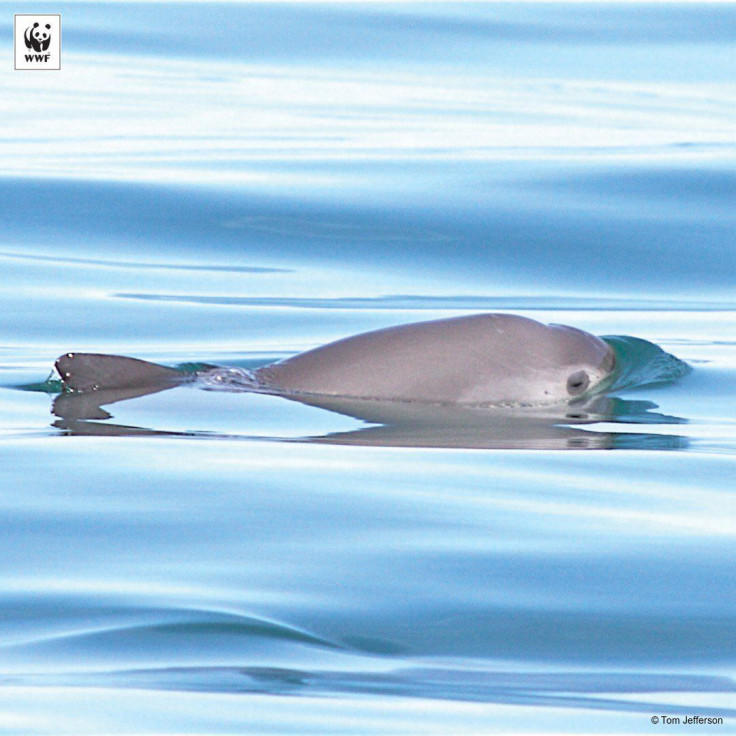Vaquita Extinction: US Navy Deploys Dolphins To Save Endangered Animal

U.S. Navy dolphins are trying to round up a severely endangered marine animal in a last-ditch effort to save it from extinction.
The nonprofit organization Center for Biological Diversity announced that Mexican wildlife officials would be working with the Navy starting on Oct. 12 to capture some of the vaquitas, which number fewer than 30 and live in the Gulf Of California, the strip of water that separates Baja California from the rest of Mexico and connects to the Pacific Ocean. Four trained dolphins will be used to find the little porpoises and capture them. The goal is to keep them in monitored pens in the water that will “protect them from illegal fishing activities, which have led to the species’ near demise.”
Vaquitas physically resemble dolphins but have dark circles around their eyes and mouth that have earned them the nickname “panda of the sea.” The gray animals are the smallest porpoises in the world, measuring about 5 feet and weighing about 120 pounds.
The vaquita population has plummeted in recent years; it is half of what it was last year and 90 percent reduced from what it was six years ago, officials have reported. There are now fewer than 30 of the creatures estimated to be left.
They live only in the northern portion of the Gulf of California, which in Mexico is known as the Sea of Cortez.
One of the biggest drivers of their demise has been the gillnet, a fishing net that hangs vertically in the water to capture fish like salmon, seabass and tuna by their gills but is a dangerous trap for dolphins, whales, sea turtles and vaquitas.
The World Wildlife Fund, along with advocates like actor and outspoken environmentalist Leonardo DiCaprio, has been working to prevent the vaquita’s extinction.
The vaquita is the most endangered marine mammal in the world. Join me + @World_Wildlife and take action. https://t.co/sB80PCeTG9 pic.twitter.com/UQMomVkvlC
“Failure to act will result in the imminent extinction of the vaquita,” the WWF has said. “This little porpoise wasn’t discovered until 1958 and a little over half a century later, we are on the brink of losing them forever.”
The U.S. Navy dolphins — Andrea, Fathom, Katrina and Splash — will help locate the vaquitas so scientists can collect them and bring them into their floating sanctuary, the AP reported. The four trained dolphins are all female adults chosen in part because they are gentle.
The goal is for the vaquitas to breed in captivity and grow their population, potentially one day to no longer be an endangered species and be released into the wild.
“We support this last-ditch effort to save the vaquita from extinction, but it shouldn’t be used as an excuse to allow fishing to continue in its habitat,” Alex Olivera, the Center for Biological Diversity’s Mexico representative, said in the group’s statement. “These beautiful animals deserve to live free in the Gulf of California, but that will never happen until the Mexican government eliminates the illegal gillnet fishing that has driven these porpoises to the very brink of extinction.”
Vaquita have not, however, been captured alive before.
“It’s a high-stakes operation that’s happening because the Mexican government has shown an inability to protect the animals in the wild,” Olivera said. “That has to change if the vaquita is to have any future.”
© Copyright IBTimes 2025. All rights reserved.





















